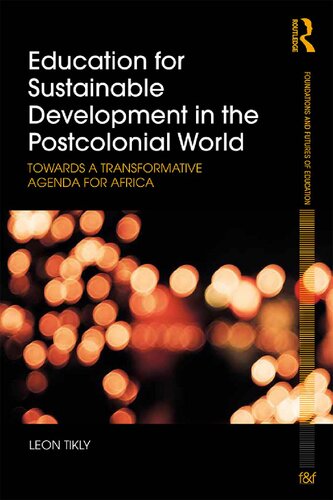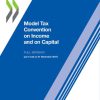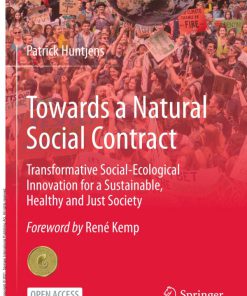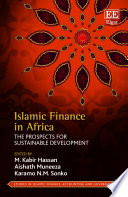Education for Sustainable Development in the Postcolonial World 1st Edition by Leon Tikly ISBN 1351812394 9781351812399
$50.00 Original price was: $50.00.$25.00Current price is: $25.00.
Education for Sustainable Development in the Postcolonial World 1st Edition by Leon Tikly – Ebook PDF Instant Download/Delivery: 1351812394, 9781351812399
Full download Education for Sustainable Development in the Postcolonial World 1st Edition after payment
Product details:
ISBN 10: 1351812394
ISBN 13: 9781351812399
Author: Leon Tikly
Education for Sustainable Development in the Postcolonial World 1st Edition:
Education for Sustainable Development (ESD) lies at the heart of global, regional and national policy agendas, with the goal of achieving socially and environmentally just development through the provision of inclusive, equitable quality education for all. Realising this potential on the African continent, however, calls for radical transformation of policy and practice. Developing a transformative agenda requires taking account of the ‘learning crisis’ in schools, the inequitable access to a good quality education, the historical role of education and training in supporting unsustainable development, and the enormous challenges involved in complex system change.
In the African continent, sustainable development entails eradicating poverty and inequality, supporting economically sustainable livelihoods within planetary boundaries, and averting environmental catastrophe, as well as dealing with health pandemics and security threats. In addressing these challenges, the book:
- explores the meaning of ESD for Africa in the context of the ‘postcolonial condition’
- critically discusses the Sustainable Development Goals (SDGs) as well as regional development agendas
- draws on a wealth of research evidence and examples from across the continent
- engages with contemporary debates about the skills, competencies and capabilities required for sustainable development, including decolonising the curriculum and transforming teaching and learning relationships
- sets out a transformative agenda for policy-makers, practitioners, NGOs, social movements and other stakeholders based on principles of social and environmental justice.
Education for Sustainable Development in the Postcolonial World is an essential read for anyone with an interest in education and socially and environmentally just development in Africa.
Education for Sustainable Development in the Postcolonial World 1st Edition Table of contents:
-
Setting the Scene
- Introduction
- The ‘Postcolonial Condition’
- An Overview of Global and Regional Policy Agendas
- The SDGs
- The Education SDG
- Agenda 2063
- Continental Education Strategy for Africa
- Global and Regional Agendas and the ‘Learning Crisis’
- Aims and Summary of Main Arguments
- Conclusion
-
Introducing Complex Systems
- Introduction
- Why Complexity Theory?
- General Characteristics of Complex Systems
- Understanding and Researching Complex Systems
- Conclusion
-
Towards a Framework for Conceptualising Education for Sustainable Development
- Introduction
- The Meaning of ‘Sustainable Development’ in Global and Regional Policy Agendas
- The Meaning of Education for Sustainable Development
- The Meaning of Social and Environmental Justice
- Defining Transformative SD and ESD
- Reconceptualising a Transformative ESD
- Conclusion
-
Globalisation and the Postcolonial Condition
- Introduction
- The Nature of Complex Globalisation
- Domains of Development
- Power in Global Governance
- Africa and the Global Economy
- The Postcolonial Condition and the Environment
- Changing Patterns of Global Governance
- Global Governance and Colonialism
- Global Governance in the Era of ‘Development’
- The Influence of Global Civil Society on Global Governance
- Regimes of Global Governance
- Africa and Developmental Regionalism
- Transformative Regionalism
- The Postcolonial State in Africa
- Conclusion
-
Africa and the Global Governance of Education
- Introduction
- Conceptualising Global and Regional Education Policy
- The Emergence of Education for All as Global Regime of Education Governance
- The Increasing Complexity of Global and Regional Governance of Education
- The Aid Regime
- The Human Rights Regime
- Trade and Security Regimes
- The MDG Regime
- The Emergence of the SDG Regime
- Emergence of the ESD Regime
- Conclusion
-
The Regional and National Governance of Education
- Introduction
- Developmental Regionalism and Education Policy in Africa
- The Emergence of CESA as Part of a Regional Regime of Governance-in-the-Making
- CESA and Changing Patterns of Governance at a National Level
- Changing Patterns of Control Over the Governance of Education
- Education Governance After Independence
- Civil Society, the State, and Education Governance
- The Privatisation of Education and Training in Africa
- CESA, Privatisation, and the Future Funding of Education and Training
- The State and Political Socialisation
- Global Citizenship Education
- Education, the State, and Violence
- Conclusion
-
From Colonial Education to the SDGs: Changing Discourses on Skills for Development
- Introduction
- Skills for Economic Development: Changing Priorities
- Skills Formation Under Colonialism
- Skills Formation and ‘Modernisation’
- The Rise and Rise of Human Capital Theory
- Skills Formation, Knowledge Economies, and Twenty-First-Century Skills
- Skills Formation and Lifelong Learning
- Skills Formation and Regional Agendas
- Framing Regional Skills Agendas: Agenda 2063 and ‘Inclusive Growth’
- Skills Formation and CESA
- CESA and Basic Literacy and Numeracy
- CESA and STEM-Related Skills
- Technical and Vocational Education and Training
- CESA and the Cultural Basis of Skills Formation
- CESA, Skills, and the Environment
- Towards a Sustainable Approach to Skills Formation
- Beyond ‘Inclusive Growth’
- Skills, Competencies, and Capabilities for Sustainable Development
- Complex Capabilities
- Conclusion
-
Decolonising the Curriculum: Education for an African Cultural Renaissance
- Introduction
- Decolonising the Curriculum
- Decolonising the Curriculum and the Sociology of Knowledge
- Decolonising the Secondary School Science Curriculum
- The Burning Language Question in African Education
- The Instrumental Approach
- The Rights-Based Approach
- Language-in-Education Policy, Theory, and Research
- Creating an Enabling Environment to Support the Development of Linguistic Capability
- Conclusion
-
Towards a Transformative Pedagogy
- Introduction
- The Progressive Approach
- The Formalist Approach
- Towards a Transformative Pedagogy for Africa
- Complexity and Learning
- Conclusion
-
Towards a Transformative Agenda
-
- Introduction
- Towards a Counter-Hegemonic Movement for Transformative Change
- Building a Broad-Based Coalition for Change
- Articulating the Causes of Unsustainable Development and of the Learning Crisis
- Developing a Counter-Hegemonic Vision for ESD
- The Role of Intellectuals in Developing a Counter-Hegemonic Vision
- Realising Complex Change Through Developing Sustainable Education and Training Systems
- Placing an Ontology of Learning at the Heart of System Reform
- Developing Systemic Responses to the Learning Crisis
- Facilitating System Leadership
- Investing in Educators as Agents of Transformative Change
- Democratising the Governance of Education
- Creating Learning Systems
- Moving Out of the Dependency Trap
People also search for Education for Sustainable Development in the Postcolonial World 1st Edition:
why is the education for sustainable development relevant
environmental education for sustainable development
role of education for sustainable development
climate change education for sustainable development
issues and trends in education for sustainable development
Tags:
Leon Tikly,Education,Sustainable Development,Postcolonial,World
You may also like…
Politics & Philosophy - Social Sciences
The Sustainable Development Goals in Higher Education A Transformative Agenda 1st Edition Steele
Education Studies & Teaching - Special Education
Earth Sciences - The Environment
Uncategorized
Business & Economics - Professional Finance
Islamic Finance in Africa The Prospects for Sustainable Development 1st Edition M. K. Hassan
Education Studies & Teaching - School Education & Teaching
Earth Sciences - Volcanoes
Uncategorized












